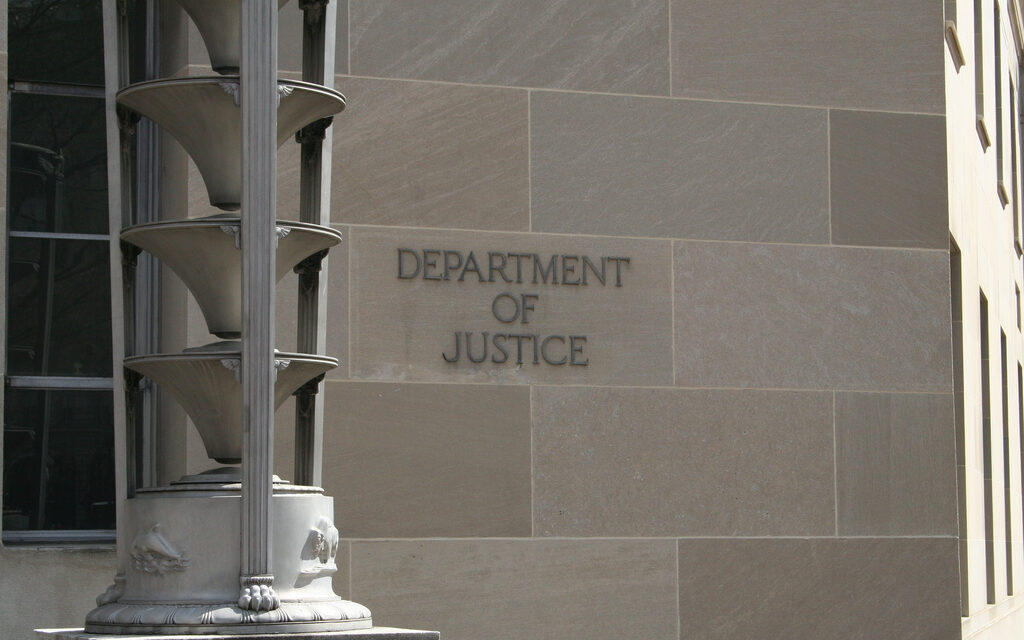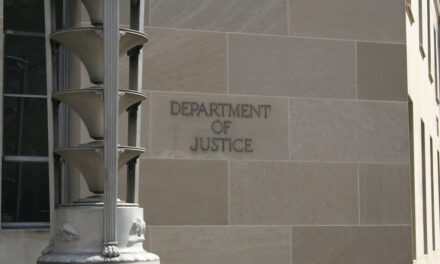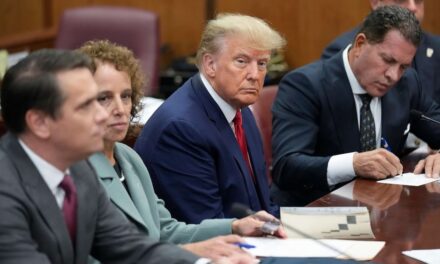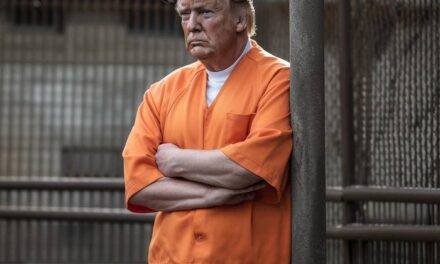Michael J. Sniffen of the Associated Press has an interesting article on the FBI agent who arrested Zacarias Moussaoui on August 16, 2001.
FBI agent Harry Samit of Minneapolis originally testified as a government witness, on March 9, but his daylong cross examination by defense attorney Edward MacMahon was the strongest moment so far for the court-appointed lawyers defending Moussaoui.
The government is seeking the death penalty for Moussaoui, but in order to succeed they need to prove that Moussaoui’s action led to at least one American death. Moussaoui has confessed to “conspiring with al-Qaida to fly planes into U.S. buildings.” But he insists he was assigned to attack the White House in a follow-up attack and didn’t have anything to do with the 9/11 hijackers. His defense team, therefore, is trying to prove that it wasn’t Moussaoui’s dishonest answers to questioning that prevented the uncovering of the 9/11 plot, but the government’s negligence. And Agent Samit gave them a lot of ammunition.
MacMahon displayed a communication addressed to Samit and FBI headquarters agent Mike Maltbie from a bureau agent in Paris relaying word from French intelligence that Moussaoui was “very dangerous,” had been indoctrinated in radical Islamic Fundamentalism at London’s Finnsbury Park mosque, was “completely devoted” to a variety of radical fundamentalism that Osama bin Laden espoused, and had been to Afghanistan.
Based on what he already knew, Samit suspected that meant Moussaoui had been to training camps there, although the communication did not say that.
The communication arrived Aug. 30, 2001. The Sept. 11 Commission reported that British intelligence told U.S. officials on Sept 13, 2001, that Moussaoui had attended an al-Qaida training camp in Afghanistan. “Had this information been available in late August 2001, the Moussaoui case would almost certainly have received intense, high-level attention,” the commission concluded.
But Samit told MacMahon he couldn’t persuade FBI headquarters or the Justice Department to take his fears seriously. No one from Washington called Samit to say this intelligence altered the picture the agent had been painting since Aug. 18 in a running battle with Maltbie and Maltbie’s boss, David Frasca, chief of the radical fundamentalist unit at headquarters.
They fought over Samit’s desire for a warrant to search Moussaoui’s computer and belongings. Maltbie and Frasca said Samit had not established a link between Moussaoui and terrorists.
Samit testified that on Aug. 22 he had learned from the French that Moussaoui had recruited someone to go to Chechnya in 2000 to fight with Islamic radicals under Emir Ibn al-Khattab. He said a CIA official told him on Aug. 22 or 23 that al-Khattab had fought alongside bin Laden in the past. This, too, failed to sway Maltbie or Frasca.
Under questioning from MacMahon, Samit acknowledged that he had told the Justice Department inspector general that “obstructionism, criminal negligence and careerism” on the part of FBI headquarters officials had prevented him from getting a warrant that would have revealed more about Moussaoui’s associates. He said that opposition blocked “a serious opportunity to stop the 9/11 attacks.”
“Obstructionism, criminal negligence and careerism” are pretty loaded words. How did preventing a warrant for Moussaoui advance someone’s career? What was ‘criminal’ about their negligence? Is this a partial explanation?
Thomas Pickard, interim director of the FBI after the departure of Louis Freeh in June 2001, said in sworn testimony that he briefed Ashcroft at “seven or eight meetings” about the FBI’s counter-intelligence activities, and on two occasions mentioned mounting evidence of an al Qaeda attack.
Pickard said Ashcroft told him to stop talking about the al Qaeda threats.
“He did not want to hear about this anymore,” Pickard said. “That is correct.”
The interim director of the FBI gave sworn testimony that Attorney General Ashcroft didn’t want to hear about al-qaeda threats. Even more curious, Pickard was allegedly not even made aware of the Moussaoui case, but George Tenet was made aware of it.
From the 9/11 Commission Report:
There is no evidence that either FBI Acting Director Pickard or Assistant
Director for Counterterrorism Dale Watson was briefed on the Moussaoui case
prior to 9/11.
And Tenet on the morning of 9/11 (approximately 8:50 am, four minutes after the first plane hit, and 13 minutes before the second plane hit):
CIA Director Tenet is told of the first WTC crash while he is eating breakfast with his mentor, former Senator David Boren (D). They are interrupted when CIA bodyguards converge on the table to hand Tenet the cell phone. Tenet is told that the WTC has been attacked by an airplane. Boren later says, “I was struck by the fact that [the messenger] used the word ‘attacked.’
” Tenet then hands a cell phone back to an aide and says to Boren, “You know, this has bin Laden’s fingerprints all over it.”
“
‘He was very collected,’ Boren recalls. ‘He said he would be at the CIA in 15 minutes, what people he needed in the room and what he needed to talk about.’
”[ABC News, 9/14/02; USA Today, 9/24/01]
According to other accounts, Tenet responds to the caller, “They steered the plane directly into the building?” Tenet then says to Boren, “That looks like bin Laden.” Tenet muses aloud, “I wonder if this has something to do with the guy [Zacarias Moussaoui] who trained for a pilot’s license.”
David Boren is (and was) the president of the University of Oklahoma, where Moussaoui obtained the email password of the later-to-be-beheaded-in-Iraq Nick Berg. Can you hear the wrinkling tin-foil? In any case, the behavior of the FBI in response to the Moussaoui arrest is curious, at best.
Samit’s complaints echoed those raised in 2002 by Coleen Rowley, the bureau’s agent-lawyer in the Minneapolis office, who tried to help get a warrant. Rowley went public with her frustrations, was named a Time magazine person of the year for whistleblowing and is now running for Congress.
Samit revealed far more than Rowley of the details of the investigation.
MacMahon walked Samit through e-mails and letters the agent sent seeking help from the FBI’s London, Paris and Oklahoma City offices, FBI headquarters files, the CIA’s counterterrorism center, the
Secret Service, the Immigration and Naturalization Service, the Federal Aviation Administration, an intelligence agency not identified publicly by name in court (possibly the National Security Agency), and the FBI’s Iran, Osama bin Laden, radical fundamentalist, and national security law units at headquarters.Samit described useful information from French intelligence and the CIA before 9/11 but said he was not told that CIA Director George Tenet was briefed on the Moussaoui threat on Aug. 23 and never saw until after 9/11 a memo from an FBI agent in Phoenix about radical Islamists taking flight training there.
For each nugget of information, MacMahon asked Samit if Washington officials called to assess the implications. Time after time, Samit said no.
MacMahon introduced an Aug. 31 letter Samit drafted “to advise the FAA of a potential threat to security of commercial aircraft” from whomever Moussaoui was conspiring with.
But Maltbie barred him from sending it to FAA headquarters, saying he would handle that, Samit testified. The agent added that he did tell FAA officials in Minneapolis of his suspicions.






